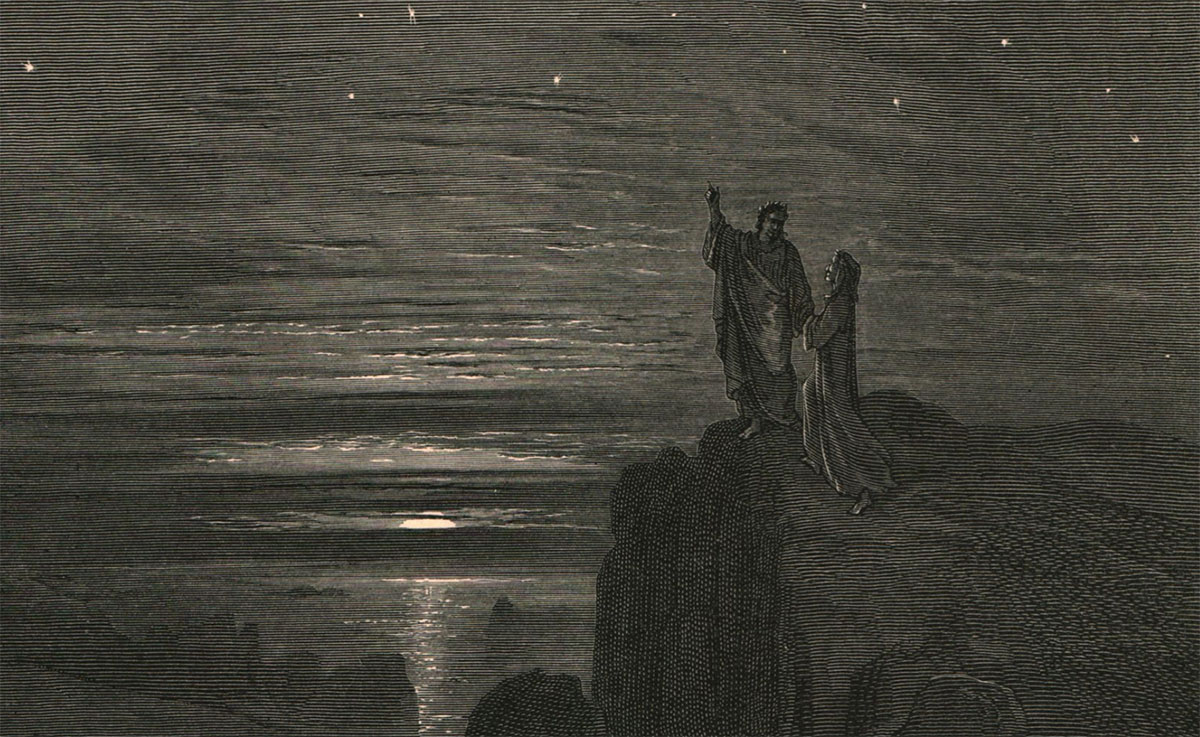Over the past several weeks, I have begun preparing my first topic for a women’s bible study that ties together how my love of science intertwines with my love of Christ and His work in the world. My immediate thought was to use Psalm 19. For many years I have been riveted by Psalm 19:1-2, verses that fired my desire to become a scientist. Throughout my early childhood and into my teen years, the more I learned about creation, the more enraptured I became by the power of the Creator and desired to know Him more fully. For me, Psalm 19:1 said it all: “The heavens declare the glory of God; the skies proclaim the work of his hands” (NIV). This verse showed me that by studying creation I am deepening my understanding of God’s character. What a glorious endeavor! Though I have often claimed Psalm 19 as one of my favorite chapters in the Bible, until recently I did not fully grasp the significance of the entire chapter. I could recite verses 1 and 2 because I felt that was all that applied to me. Sure, the second half talking about God’s law was important, but what I really cared about was creation!
Until recently.
As I prepared content for a bible study, I quickly learned that my original attitude toward Psalm 19 was shallow and misguided. Before I can dive into the theological meat of Psalm 19, however, I think it is important to know a bit of background information. My next several blog posts will consist of continuous pieces of what I have been learning through my study of Psalm 19. This first post is simply setting the stage.
Scene I. Act I.
As with any great work, knowing the author is an important component to understanding the content. Here, Psalm 19 is, obviously, in the Book of Psalms. We know from the introduction to this chapter that it is a “Psalm of David.” Who is David and why should we care what he has to say? The David that is credited with writing this Psalm (as well as many others) is King David: son of Jesse, slayer of Goliath, servant and successor of King Saul in Israel, and who Paul says in the book of Acts God claimed as “a man after [his] heart” (13:22). King David also foreshadowed the coming Messiah, Jesus Christ: the Son of God, born to the tribe of Judah, a “son of David” (Mat. 1:1), and who, through his life, death, and resurrection was established as the True and Eternal King of Israel. Through Jesus, God’s covenant with David to “raise up [David’s] offspring” and “establish the throne of his kingdom forever” (2 Sam. 7:12, 13) was fulfilled.
In addition to the author, it is important to know the poetic structure. The Book of Psalms is a collection of poems, songs, and hymns that cover the entire spectrum of human experience. Matthew Henry, in his commentary on the Book of Psalms, makes this beautiful statement describing a “psalm”:
…The Hebrew calls it Tehillim, which properly signifies Psalms of praise, because many of them are such; but Psalms is a more general word, meaning all metrical compositions fitted to be sung, which may as well be historical, doctrinal, or supplicatory, as laudatory. Though singing be properly the voice of joy, yet the intention of songs is of a much greater latitude, to assist the memory, and both to express and to excite all the other affections as well as this of joy…for we are directed not only to praise God, but to teach and admonish ourselves and others in psalms, and hymns, and spiritual songs (Col. 3:16).
Within the Book of Psalms there are many different forms of expression: laments, hymns (of prophecy, praise, thanksgiving, and celebration of God’s law), wisdom psalms, songs of confidence, royal psalms, and historical psalms. Psalm 19 falls under the category of a hymn of celebration of God’s law, and in this chapter David describes the two ways that God reveals himself: through creation (v. 1-6) and through God’s Word, his law (v. 7-11).
The first form of revelation is known as “general revelation” because it is available to everyone – it can be experienced or witnessed “generally”. In Psalm 19, the natural world “declares” there is an intelligent Creator and He is worthy of being praised. Paul states in Romans 1:20, “For his invisible attributes, namely, his eternal power and divine nature, have been clearly perceived, ever since the creation of the world, in the things that have been made. So they (people) are without excuse”. The evidence of God’s “eternal power and divine nature” are so prevalent in creation that everyone who looks at creation and sees its beauty and wonder cannot claim ignorance as a reason for denying the existence of God. But while the natural world proclaims God’s existence, it is not sufficient in itself to provide a way for eternal salvation. For that we need God’s Word, His law, which is the Scripture. This form of revelation is known as “special revelation” because, though all the world has been given evidence of God in creation, salvation is attained through believing in the person and work of Jesus Christ (John 14:6, Acts 16:31), who is sufficiently revealed to us in Scripture.
Now, the stage is set, and we can begin to explore the messages of Psalm 19. This, along with an examination of why individual verses are important within the context of the entire chapter, will be the focus of my next blog post.
*All scripture references used in this post were taken from the ESV translation unless otherwise noted.

